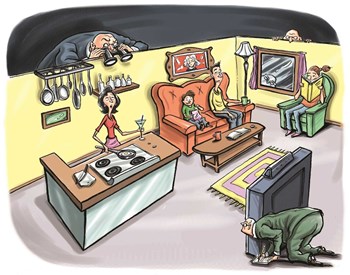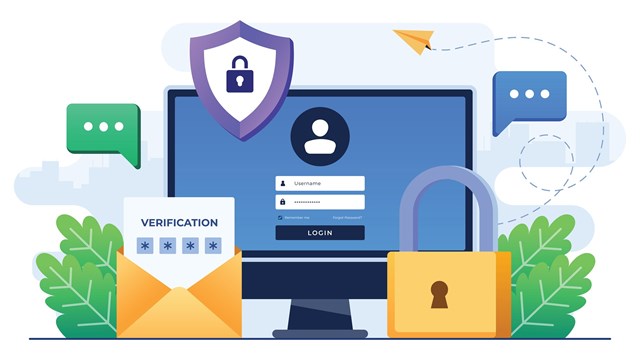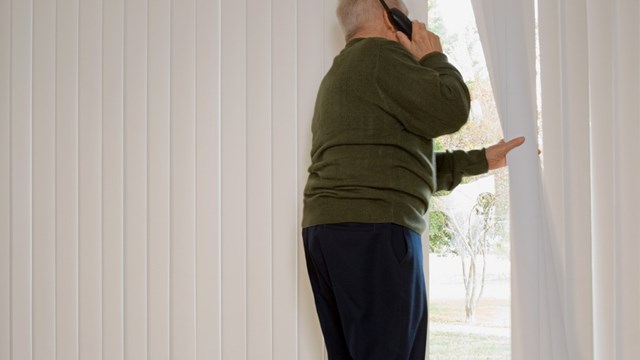
When we step through our front doors and turn the lock behind us, we expect to feel content in the knowledge that we are safe and sound in our home, and the community in which we live. The boards and managers who oversee these communities also are seeking to ensure that safety is a top priority, and that residents do not have to worry about the well-being of themselves, their families or their property.
But where is the line between security...and snooping? Today, a broad range of options exist when it comes to monitoring and securing properties, and it is a field that continues to evolve as new technologies emerge. At times, these technologies may stir up questions regarding privacy, but for many communities, those issues are outweighed by a desire to have as many safeguards as possible in place.
Keeping Safe
The ways in which co-op and condo communities approach security have changed over the years, moving from a reliance on security guards and regular patrols to more automated access control and visual monitoring.
“People were originally satisfied with a rover going around and checking doors and things like that,” says Jonathan Louis, LCAM, CMCA, AMS, president and CEO of American Management Group in Pembroke Pines. “We’ve almost seen an increase in security awareness since the economy crashed in the mid-2000s. There’s more attention to it now. We’re seeing monitoring cameras in garages, parking lots and common areas.”
Attorney Richard DeBoest II, a managing partner with the law firm Goede Adamczyk & DeBoest, PLLC in Naples agrees. “We have seen a big increase in cameras,” he says, particularly ones that are not necessarily monitored on a consistent basis but rather have been put in place as a visual deterrent.
These days, says Ron Orasi, general manager of Universal Protection Services, which serves South Florida and the Caribbean, “there’s probably a little less physical presence and more access control and video surveillance.”
One of the main reasons for this shift, Orasi says, has been “cost savings.” When resources are limited, visual surveillance and access control such as key cards can serve a community very well. “Folks who have the funds do both,” says Louis, referring to both on-site security and remote surveillance. “If the gate house person can watch the monitors, then that’s great. You have a person at the front desk acting as a deterrent who can also monitor the cameras.”
Security and Liability
In addition to questions of finance, issues of liability and risk also factor into the type of security system communities choose to implement. If there is no live security person in place to constantly watch the surveillance camera monitors, then that fact must be made public. Residents should know that the cameras “are recording activities but are not actively monitored,” says DeBoest. “If I see a camera and think that someone’s watching, then I have the expectation that someone can come and help me if I’m in trouble.” If that's not the case, but the building or HOA has led residents to believe there's a human being watching a bank of monitors somewhere nearby, there could be big issues. “There’s liability if there is a camera in place and no one is monitoring it,” says Louis. “That has to be addressed.” That means that if cameras are visible, then a sign must accompany them stating that the scene is being recorded, but not necessarily monitored.
These questions of liability should be examined closely when looking into the creation of an association's security plan. In fact, according to DeBoest, it would be best if condo communities and associations stayed away from the term 'security' altogether. He cites the case of the community in which the Trayvon Martin/George Zimmerman incident took place and notes that the community association itself was liable for a significant sum because it had sponsored and run the neighborhood watch, which shooter Zimmerman participated in. “Don’t tell your community that you are providing for security,” DeBoest says. The job of the association as a governing body should be to control access and document who comes and goes. The association is not there to prevent crime, he says.
If the community needs that level of security and oversight then it is best to hire a full-service company to provide and manage it, DeBoest recommends. “Community associations just are not designed to be the police,” he says. They can undertake access control but should not “be serving the role of police.”
The advent of camera surveillance also serves to help ensure that issues of liability that do come up can be resolved quickly and accurately. Residents as well as board members and managers appreciate the cameras because they can record situations and allow them to be reviewed later for assignment of cost and blame. “Say the gate keeps getting damaged,” says Louis. “If it’s recorded, they can assign cost and blame to that particular vehicle and then find it to stop it from happening again.”
Keeping Residents Informed
As with anything that affects the day-to-day operations of a condo or co-op community, any measures undertaken in the name of security should be shared with the residents they will affect.
First of all, new security programs, such as the hiring of an on-site security vendor or the implementation of video cameras in a public place, likely will come up for discussion and vote depending on their cost. The board will look at the expenditure in light of the community's budget, says Orasi. In some cases, a special assessment may be required to fully fund the initiatives. Whatever the end result, “Everyone in the community should be made aware of security additions,” says Orasi.
“If the cost of a new security measure is over a certain amount of money, then the board will have to get multiple bids,” Louis says. Outside of questions of finance, the board is under no obligation to get residents' approval on new security measures, he says. “The board is supposed to act on behalf of the residents’ best interests, so they can bid on the initiatives and vote on it in a public meeting, so people know what’s going on.”
Open communication not only can help ensure resident satisfaction through transparency, but also can serve to enhance and support the security measures in place. “It’s fine to be open because it’s the best deterrent there is,” says Orasi. “If everyone knows there are cameras, they can tell their kids, ‘Hey, there’s a camera by the pool, so don’t do anything foolish.’ A lot of times the communication is the deterrent.”
“Every owner in a community,” Louis says, “has the right to know what’s going on—so let residents know on a monthly or quarterly basis. It reduces contention if people feel that they're in the loop."
Too Much of a Good Thing?
With cameras and security staff on-site, do residents of co-op and condo communities ever feel that their privacy is being compromised? According to Orasi, the answer is not really. “I don’t see that coming up very often,” he says.
It is a sentiment echoed by Louis. “People seem more safety conscious now,” he says. “They want well-lit areas, and they want cameras in place.” Privacy issues come up far more often, he adds, when discussing questions of surveillance on the state and federal level, and other issues fresh from the national headlines.
Questions of privacy, however, certainly do arise when individual residents 'go rogue' and try to install their own surveillance/security measures, or if the community's rules are not adhered to strictly. For example, a resident may install a camera to watch over his or her own front door, but there's likely to be trouble if they install a camera that points toward their neighbor’s living room.
In other instances, says DeBoest, problems have arisen when residents discovered that board members could watch surveillance footage from their personal computers, which generated a sense of neighbor watching neighbor and not a legitimate monitoring system. “They felt that was overstepping their bounds." DeBoest suggests that communities either just record and store the video in case a need arises, and only view it in a centralized office in a formal business-like setting.
Communities that monitor visitors' comings and goings on their property also need to remember that they can not store the information found on a driver’s license. “Swiping a driver’s license with a lot of information on it—you can’t do that,” says DeBoest. “You’re not allowed to store or maintain that information. You can look at the license and even make a copy of the license but you can’t store that information.”
If residents feel that their privacy is being compromised or if they are unhappy with the safety measures in their community, they have the right to bring that complaint to the board. When it comes to video monitoring, for example, “depending on where the camera is, they could complain to the association and maybe get them to move it,” says DeBoest.
Maintaining a Good Plan
A good security plan needs regular updating to remain effective. “All the vulnerabilities of a community should be examined annually,” says Louis. “Not just the hurricane plan, but all of its vulnerabilities, including security. The plan should be looked at once a year at least. And there are experienced companies that can go over those plans” with boards, adjusting their approach to fit the community's current needs.
And again, the professionals stress that it's vital for everyone to remember the limits of what can and should be done in the name of security in a community. “We get people calling the board and saying ‘this person is being aggressive towards me,’" says DeBoest, "and we tell them to call the police. If you feel at all unsafe, call the police first— and then the board.”
Security and privacy are often intertwined and with proper management and communication, they can co-exist not only peacefully but successfully, ensuring a happy, healthy and safe community for all.
Liz Lent is a freelance writer and frequent contributor to The South Florida Cooperator.






Leave a Comment